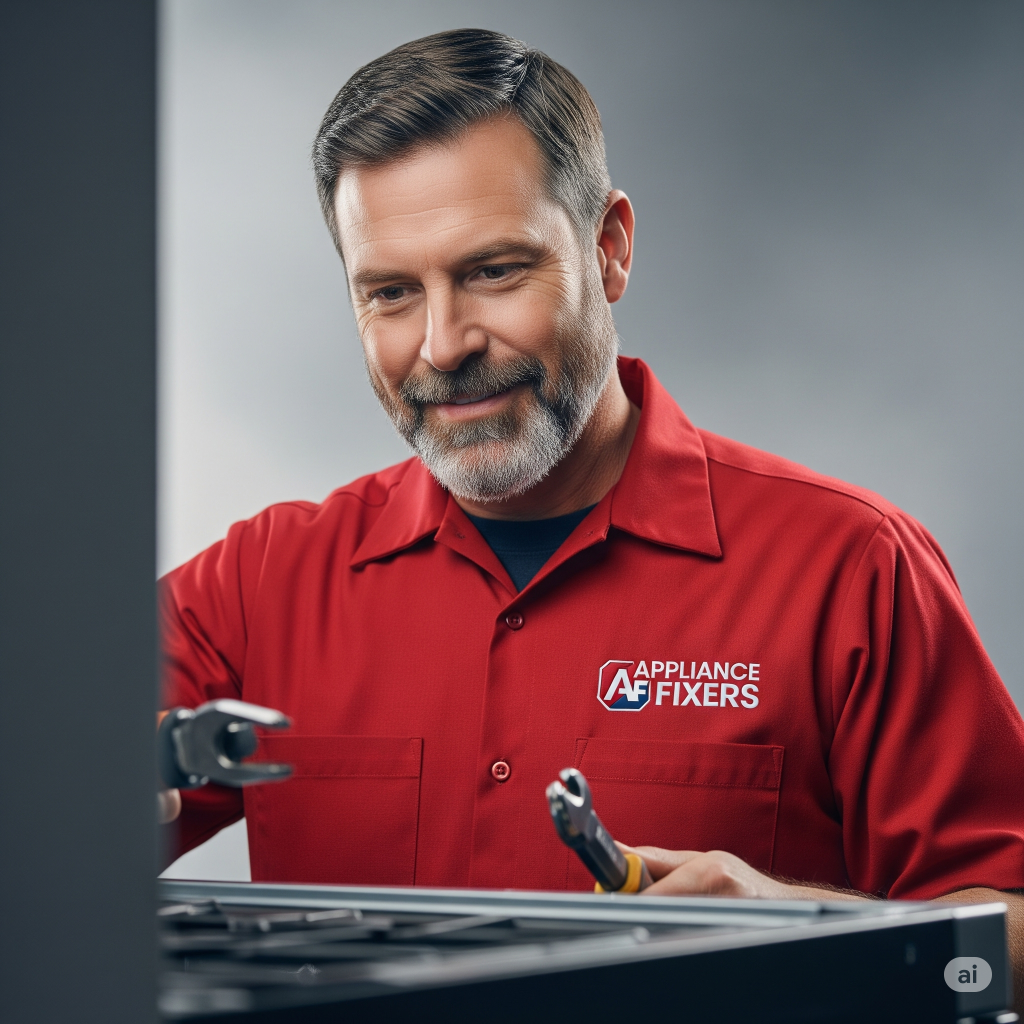Home appliances are designed to provide years of reliable service, but they don’t last forever. At Appliance Fixers, we’ve seen countless situations where homeowners ignored early warning signs, leading to complete appliance failure, expensive emergency repairs, and significant inconvenience. The key to avoiding these scenarios is recognizing when your appliances are crying out for professional attention.
Most appliance failures don’t happen overnight. Instead, they develop gradually through a series of warning signs that, when caught early, can often be addressed with relatively simple and affordable repairs. However, when these signs are ignored, minor issues escalate into major problems that may require complete appliance replacement.
Understanding these warning signs empowers you to make informed decisions about repairs, helps you budget for maintenance expenses, and prevents the frustration of sudden appliance failures. This comprehensive guide will walk you through the most common warning signs across all major home appliances and help you determine when it’s time to call the professionals.
Strange Noises: Your Appliance’s Cry for Help
Unusual sounds are often the first indication that something isn’t right with your appliances. Every appliance has its normal operational sounds, but when these change significantly or new noises appear, it’s time to pay attention. Different types of noises typically indicate specific problems that require targeted solutions.
Grinding noises usually suggest worn bearings, damaged motors, or foreign objects where they shouldn’t be. In washing machines, grinding might indicate worn drum bearings or transmission problems. Refrigerators making grinding sounds often have compressor issues or dirty condenser fan motors. These problems rarely resolve themselves and typically worsen over time if not addressed.
Squealing or screeching sounds commonly indicate belt problems, worn motor bearings, or insufficient lubrication in moving parts. Dryers making these sounds often need new belts or drum support rollers, while dishwashers might have worn wash pump motors or damaged spray arm assemblies.
Banging or knocking noises suggest loose components, unbalanced loads, or failing shock absorbers. Washing machines that bang during the spin cycle may have worn suspension systems or be sitting unlevel. Refrigerators that knock might have failing compressor mounts or loose internal components.
Clicking sounds that occur repeatedly or at unusual times can indicate electrical problems, failing relays, or control system issues. These problems often require professional diagnosis and may involve safety concerns that make DIY repairs inadvisable.
Performance Decline: When Efficiency Drops
Gradual performance decline is another major warning sign that your appliances need professional attention. This type of problem often develops slowly, making it easy to overlook until the appliance is operating significantly below its intended efficiency level.
Temperature control problems are particularly common and problematic. Refrigerators that can’t maintain consistent temperatures, ovens that run too hot or cold, or water heaters that don’t heat adequately all indicate serious underlying issues. These problems not only affect appliance functionality but can also pose food safety risks or result in inadequate cleaning or cooking results.
Increased cycle times often indicate developing problems that will worsen if not addressed. Dryers that take longer to dry clothes might have clogged vents, failing heating elements, or worn drum seals that allow heated air to escape. Dishwashers with extended cycle times may have clogged spray arms, failing pumps, or control system problems.
Poor cleaning or cooking results despite proper use suggest internal component problems. Washing machines that don’t clean clothes effectively might have worn agitators, failing pumps, or control system issues. Ovens that cook unevenly could have failing heating elements, damaged door seals, or calibration problems.
Energy bill increases without corresponding usage changes often indicate that appliances are working harder to achieve the same results. This inefficiency typically results from worn components, dirty internal parts, or systems operating outside their designed parameters.
Electrical Warning Signs: Safety Concerns
Electrical problems with appliances require immediate professional attention due to safety concerns and the potential for property damage. Never ignore electrical warning signs, as they can indicate serious hazards that pose risks to your family and home.
Frequent circuit breaker trips or blown fuses when using specific appliances indicate electrical overload conditions that could result from failing motors, damaged wiring, or short circuits within the appliance. These conditions can cause fires or electrical shock hazards if not addressed promptly.
Sparks, burning smells, or shock sensations when touching appliances are emergency situations requiring immediate professional attention. Disconnect the appliance from power and contact professionals immediately. These symptoms indicate serious electrical faults that pose immediate safety risks.
Flickering lights when appliances cycle on suggest electrical system problems that may involve your home’s wiring, the appliance’s electrical components, or inadequate electrical supply for the appliance’s requirements. Professional evaluation is necessary to determine the source and appropriate solution.
GFCI outlets that trip repeatedly when using appliances indicate ground fault conditions that could pose electrocution risks. This is particularly important for appliances in kitchens, bathrooms, and other areas where water and electricity are present.
Water-Related Problems: Leaks and Drainage Issues
Water problems with appliances can cause significant property damage if not addressed quickly. Even small leaks can lead to mold growth, structural damage, and expensive repairs that extend far beyond the appliance itself.
Visible water leaks around appliances require immediate attention to identify the source and prevent damage. Refrigerator leaks might result from clogged defrost drains, damaged door seals, or failing water lines. Washing machine leaks could indicate worn door seals, loose hose connections, or pump problems.
Standing water in dishwashers after cycles complete suggests drainage problems that could result from clogged filters, failing pumps, or blocked drain hoses. These issues often worsen quickly and can lead to water damage or unsanitary conditions.
Slow drainage from appliances like washing machines or dishwashers often indicates developing clogs or failing pumps. Address these issues promptly, as complete blockages can cause water backup and potential flooding.
Water pressure or flow problems with appliances connected to water lines suggest internal valve problems, clogged screens, or supply line issues that require professional diagnosis and repair.
Age-Related Considerations: When Repairs Make Sense
The age of your appliances plays a crucial role in determining whether repair or replacement makes the most financial sense. Understanding this relationship helps you make informed decisions about investing in repairs versus upgrading to new equipment.
Appliances under five years old are typically good candidates for repair, especially if they’re still under warranty. Most problems at this age result from manufacturing defects, installation issues, or unusual usage conditions rather than normal wear and tear.
Appliances between five and ten years old require more careful evaluation. Consider the cost of repairs relative to the appliance’s current value and expected remaining lifespan. Generally, if repair costs exceed 50% of the appliance’s current replacement value, replacement is often the better choice.
Appliances over ten years old require even more careful consideration. While some repairs may still be cost-effective, consider the appliance’s overall condition, energy efficiency compared to modern models, and the likelihood of additional problems developing soon.
Factor in energy efficiency when making repair versus replacement decisions. Older appliances often use significantly more energy than modern ENERGY STAR certified models, and the energy savings alone may justify replacement even when repairs are possible.
Refrigerator-Specific Warning Signs
Refrigerators present unique warning signs that require specific attention due to their critical role in food safety and their continuous operation requirements. Temperature fluctuations are among the most serious warning signs, as they can lead to food spoilage and safety concerns.
Excessive frost buildup in freezers or visible ice on refrigerator walls suggests defrost system problems, door seal issues, or temperature control malfunctions. These problems typically worsen over time and can lead to complete cooling failure if not addressed.
Unusually loud operation, especially if the noise level has increased recently, often indicates compressor problems, failing fans, or issues with the refrigeration system. These components are expensive to replace and may make appliance replacement more economical than repair.
High energy bills despite normal usage patterns suggest that your refrigerator is working harder to maintain proper temperatures, often due to dirty condenser coils, failing components, or refrigerant leaks.
Washer and Dryer Warning Signs
Laundry appliances show specific warning signs that indicate developing problems requiring professional attention. Excessive vibration or movement during operation suggests balance problems, worn suspension systems, or foundation issues that can cause significant damage if not corrected.
Clothes not getting clean or dry properly despite normal operation indicates problems with water flow, heating elements, or air circulation systems. These issues often develop gradually and may be related to maintenance needs or component failures.
Unusual odors from laundry appliances can indicate mold growth, lint buildup, or electrical problems. Address these issues promptly, as they can affect clothes and potentially pose health or safety risks.
Kitchen Appliance Warning Signs
Kitchen appliances present unique warning signs due to their frequent use and involvement in food preparation. Uneven cooking or heating in ovens, ranges, or microwaves suggests problems with heating elements, thermostats, or control systems that affect food safety and cooking results.
Dishwashers that leave dishes dirty or spotted despite proper loading and detergent use often have problems with spray arms, pumps, or water heating systems. These issues typically require professional diagnosis and repair.
Garbage disposals that jam frequently, make excessive noise, or fail to grind food waste effectively may have worn components or motor problems that require professional attention.
When to Call Appliance Fixers
Certain situations always require professional attention regardless of the appliance type or apparent severity of the problem. Safety concerns involving electrical issues, gas leaks, or potential carbon monoxide exposure require immediate professional intervention.
Complex mechanical or electronic problems typically require specialized knowledge, tools, and replacement parts that aren’t readily available to consumers. Attempting DIY repairs on these issues often causes additional damage and may void manufacturer warranties.
At Appliance Fixers, we recommend professional evaluation when multiple symptoms appear simultaneously, when problems persist despite basic troubleshooting efforts, or when you’re unsure about the safety implications of continuing to use the appliance.
The Cost of Waiting: Why Early Intervention Matters
Delaying professional repairs when warning signs appear almost always results in higher costs and greater inconvenience. Small problems that could be resolved with minor repairs often escalate into major component failures requiring expensive replacements.
Emergency repair calls typically cost more than scheduled service appointments, and finding replacement parts for completely failed appliances can be more difficult and expensive than addressing problems while the appliance is still operational.
Consider the cost of food spoilage, laundromat expenses, or eating out while waiting for repairs when making decisions about addressing appliance problems promptly.
Conclusion
Recognizing warning signs early and taking prompt action is the key to maintaining reliable appliance operation while minimizing repair costs and inconvenience. Your appliances communicate their needs through various symptoms, and learning to interpret these signals helps you make informed decisions about maintenance and repairs.
When warning signs appear, don’t wait for complete failure. Contact Appliance Fixers for professional evaluation and repair services that restore your appliances to optimal operation while extending their useful lifespan. Our experienced technicians can diagnose problems accurately and provide cost-effective solutions that keep your home running smoothly.



